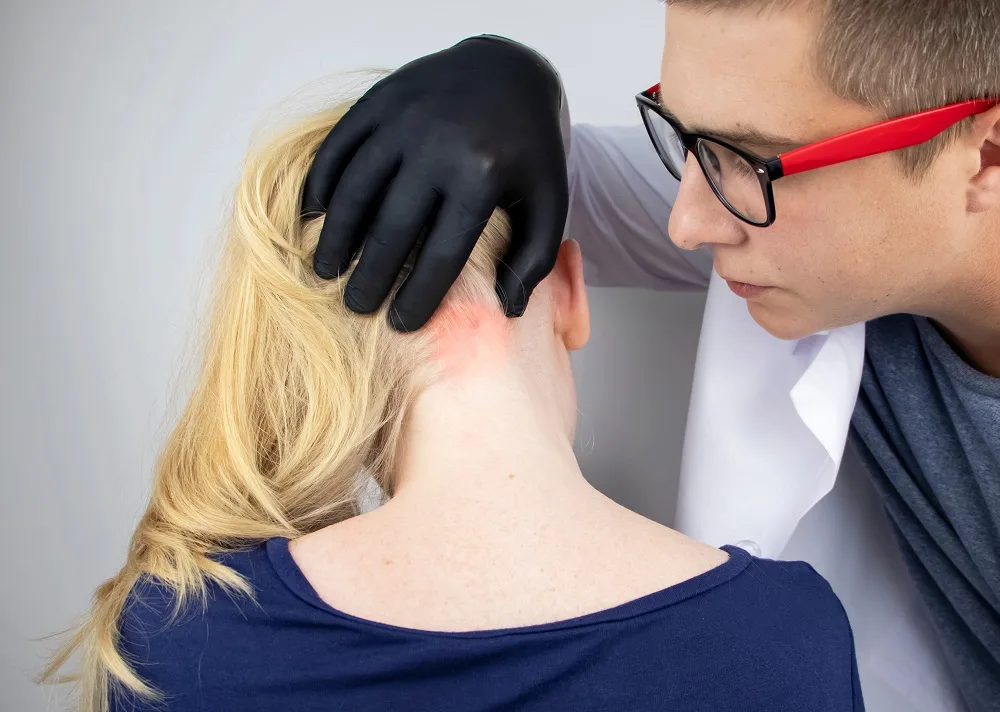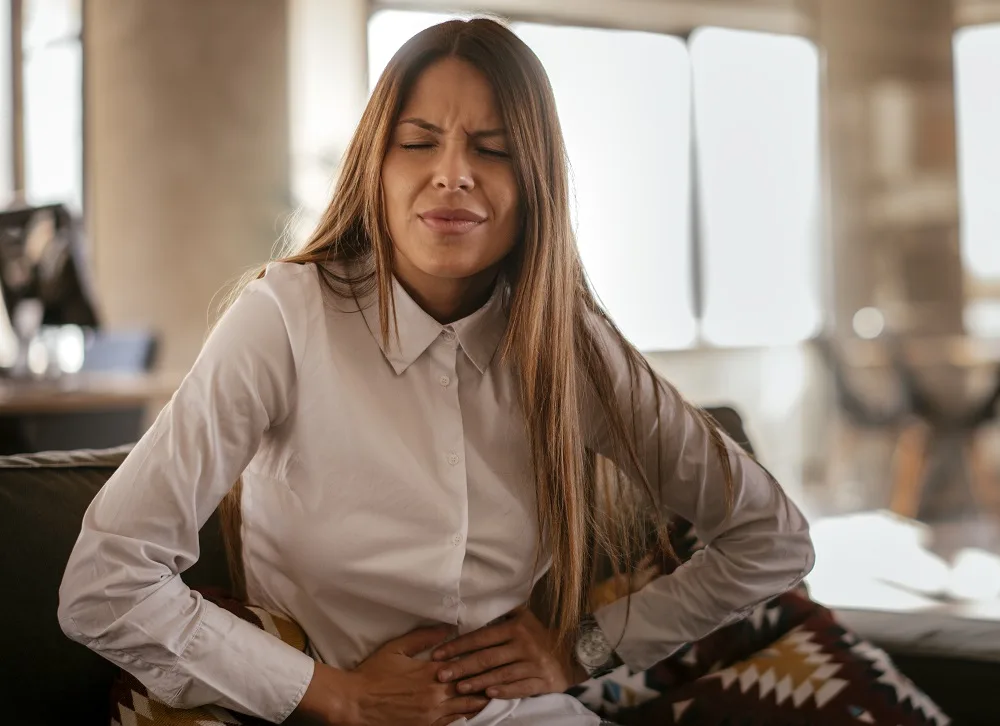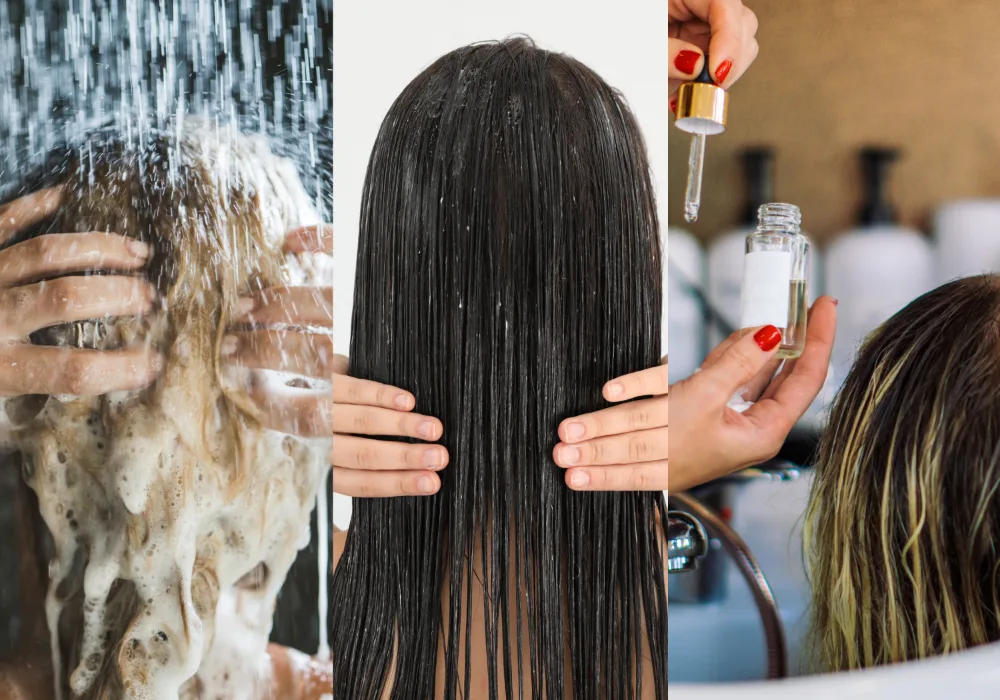Bleaching is a chemical process that strips pigment out of your hair. When someone with naturally dark hair wants to change their hair color, bleaching creates a clean slate for the new dye. It also helps to enhance the appearance of the new color.
While both of them are called bleach, there’s a big difference between hair bleach and household cleaning bleach. And you can never alternate either of them with each other.
But what happens if you accidentally put cleaning bleach on your hair? Read on to find out the answer!
What’ll Happen if You Accidentally Put Cleaning Bleach on Hair?
Putting cleaning bleach on your hair can do a lot of damage and could hurt your scalp. The effects will vary depending on the spot.
If the cleaning bleach gets anywhere close to or on your scalp, it can chemically burn your head and/or cause complete hair loss in that patch. This is because cleaning bleach will completely destroy the hair root.

If the bleach touches just the ends of your hair or somewhere in the middle, it will do the following:
- Ruin the area of hair it touched, causing it to become brittle and dry
- Completely alter your hair’s texture
- If it touches synthetic hair, the hair will most likely dissolve
If you get cleaning bleach on your hair or scalp by accident, wash it off immediately with cool water and see a doctor if required.
Why Should You Never Put Cleaning Bleach on Hair?
Simply put, cleaning bleach was not made for use on human hair. The bleach hair stylists use to lighten hair is completely different from cleaning bleach.
The bleach used on hair is a powder form of hydrogen peroxide, while cleaning bleach is a liquid combination of water and sodium hypochlorite.
When it comes to your hair, take our advice: leave the cleaning bleach only for cleaning. Because it can result in…
Chemical Burns

Bleach will not only cause your hair to fall out, but it could also give you serious chemical burns. They could be as mild as a rash or irritation or as severe as causing your skin to blister and bleed. If you experience burns from bleach, you should seek medical attention immediately.
In addition to making your hair fall out, bleach may cause severe chemical burns. The burns could cause a rash or irritation or make your skin bleed and blister. If you get a burn due to bleach, you should seek medical help immediately.
Blindness
If you pour bleach on your head, some might drip down your face and into your eyes. If this happens, you will immediately feel a burning sensation as your eyes’ moisture mixes with the bleach to form acid.
Call for assistance and rinse your eyes with lukewarm water to prevent permanent eye damage and vision loss.
Hair Loss
Cleaning bleach can take away your hair’s natural oils and make it dry, brittle, and easy to break. The corrosive chemicals can even burn hair shafts and the scalp, which may result in permanent hair loss.
Chlorine Toxicity

Bleach contains a lot of chlorine; that’s why your swimming pool smells like bleach when you add chemicals. When a concentrated amount of chlorine gets on your bare skin, it can be absorbed into the bloodstream.
That causes the chemicals in your body to become unbalanced and creates acid inside your blood vessels. If you have a case of chlorine poisoning, you may begin to notice the following:
- Stomach pain
- Blood in your stool
- Burning throughout your body
- Vomiting
You should always be very careful around cleaning bleach because it can easily splash and end up in your eyes or other parts of your body; this can result in a visit to the hospital.
What To Do if You Put Cleaning Bleach on Hair?

What if you made the mistake of thinking that cleaning bleach was the right thing to put on your hair? There will likely be some damage you won’t be able to fix until it grows out. However, there may be some things you can do to lessen the effects.
- Wash your hair immediately. Ensure your hair is thoroughly rinsed, and wash out as much of the bleach as possible. Be careful not to let any of the bleach run into your eyes while you do this.
- Use a deep conditioner to moisturize your hair as much as possible. The bleach will dry out your hair, and conditioning treatments will help neutralize this effect. Continue conditioning your hair every day for a while.
- Avoid using a hair dryer or flat iron for several days. The heat could cause more damage as it continues to dry it out.
- Add a protein treatment to your hair. Cleaning bleach will steal protein, so adding as much as possible helps.
- Put oil treatments in your hair often. Natural oils can help keep your hair moisturized and lessen bleach damage. Add things like coconut, almond, or argan oil.
Immediate reactions to cleaning bleach on hair
If cleaning bleach comes in contact with your hair, it can cause immediate reactions such as:
- Immediate reactions to cleaning bleach on hair can include irritation, burning, itching, and redness
- Avoid getting bleach on the scalp; wash it off immediately if it comes into contact with the skin
- Dryness and roughness of the hair and scalp
- Hair breakage and damage
- Hair discoloration
- Hair loss in severe cases
- If any severe reactions occur, seek medical attention immediately.
Long-term Hair damage That can Happen by cleaning bleach
We have listed some long-term damages that may happen if you accidentally put cleaning bleach on your hair. These are to give you an idea. Note that there can be no damage in your case. So don’t panic; rather consult a professional.
- Cleaning bleach can cause long-term damage to your hair, such as weakening the hair shaft and making it more prone to breakage.
- It can cause dryness, brittleness, and split ends in the hair.
- Bleach can strip your natural hair oils. So it can feel rough and straw-like.
- If you apply cleaning bleach repeatedly, it can damage the hair cuticles and cause permanent hair loss.
- It can also cause scalp irritation, inflammation, and scarring.
- The severity of the long-term damage depends on many factors. You should consult a professional to assess your hair condition.
Frequently Asked Questions
Here are some questions often asked when discussing what happens if you put cleaning bleach on hair.
Using cleaning bleach on hair will cause it to become brittle and break. Some of it may even fall out. If you have any synthetic hair, such as a weave, it could melt from the chemicals present in bleach.
Lightening your hair color is known as bleaching because of bleach’s effect on clothes. If you soak a piece of clothing in bleach, it will strip all the dye from it.
The color-stripping solution used in hair contains hydrogen peroxide, a substance that can take the color out without damage to your hair and skin.
Household bleach is diluted with water but is still a powerful chemical. The chlorine could be absorbed into your skin, and you could start to see symptoms in as little as a few minutes.
So, What To Do if You Accidentally Put Cleaning Bleach in Your Hair?
The best thing you can do after using cleaning bleach on hair is to act quickly. You should wash your hair thoroughly with plenty of soap and water. Use a conditioning treatment as soon as possible and continue doing it often.
However, if you experience sickness or discomfort on your skin or get it in your eyes, you should seek medical attention. Taking action as soon as possible may mean the difference in saving your hair or having damage you’ll have to live with for a long time.
